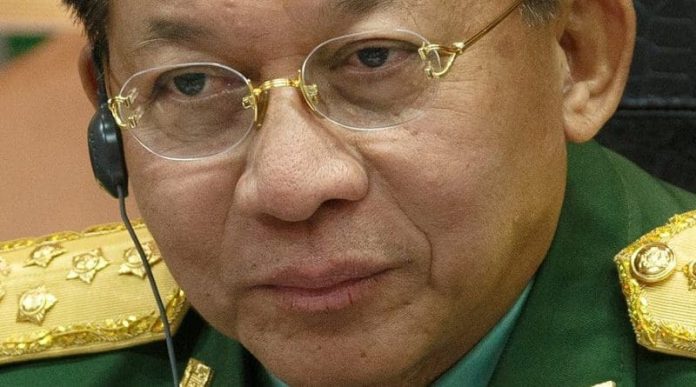The Myanmar junta has criticised an Argentine court’s decision to issue arrest warrants for top officials over alleged crimes against the Rohingya minority. The court accused the leaders of committing “genocide and crimes against humanity” against the Rohingya, a predominantly Muslim group from Myanmar.
The Rohingya are a mostly Muslim group from Myanmar, a predominantly Buddhist country. Amnesty International reports that they face conditions similar to apartheid.
Earlier this week, the Argentine court issued arrest warrants for several military and civilian officials. This includes Myanmar’s junta leader, Min Aung Hlaing, former president Htin Kyaw, and Aung San Suu Kyi, the former civilian leader.
The ruling came after a Rohingya advocacy group filed a legal complaint in Argentina.
Junta responds to legal action
In response, junta spokesperson Zaw Min Tun said, “Does Argentina know Myanmar? The Myanmar government does know Argentina.”
He added, “Argentina should first appoint the judges needed for their own judiciary before criticising Myanmar under the law.” He referenced reports from December, which showed that Buenos Aires needed 150 judges.
The legal action was based on universal jurisdiction. This principle allows countries to prosecute serious crimes, like genocide or war crimes, no matter where they occurred.
Aung San Suu Kyi faces accusations for her time as state counsellor from 2016 to 2021, before the military coup. Critics claim she did little to stop the abuse of the Rohingya.
General Min Aung Hlaing is under investigation by the International Criminal Court. The International Court of Justice is also examining a “genocide” complaint against Myanmar.
Ongoing crisis for the Rohingya
Many Rohingya have fled Myanmar, seeking refuge in Bangladesh or risking dangerous sea journeys to reach Malaysia or Indonesia via Thailand.
Since the coup in 2021, Myanmar has been in turmoil. The military faces ongoing clashes with ethnic rebels, and numerous “People’s Defence Forces” now fight against the junta.
Mr Tun Khin, president of the Burmese Rohingya Organisation UK, welcomed the court’s decision. He called it a significant step towards justice for the Rohingya and all those suffering under Myanmar’s military regime.
He also described it as “a victory for international justice,” especially as violations of international law continue to rise.
